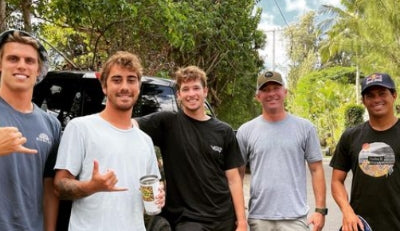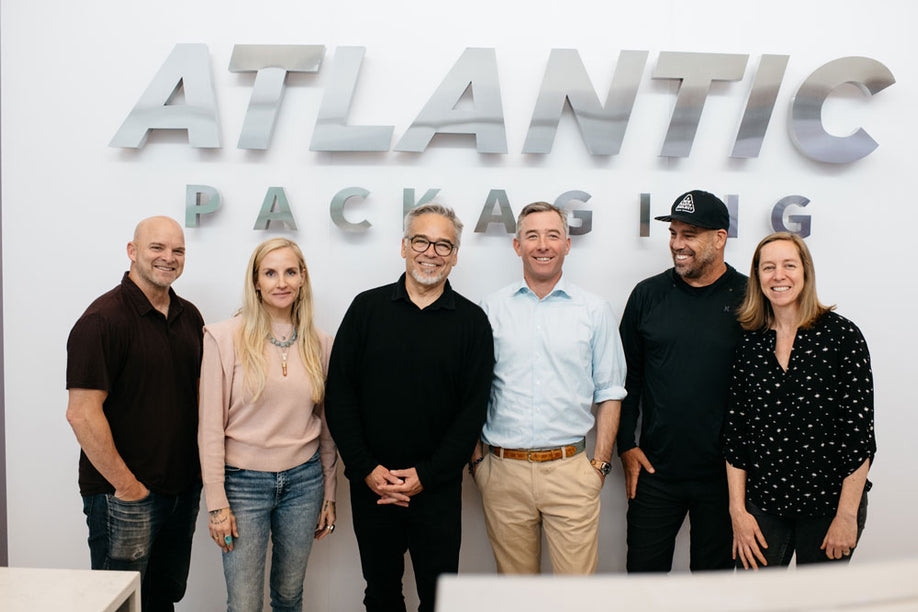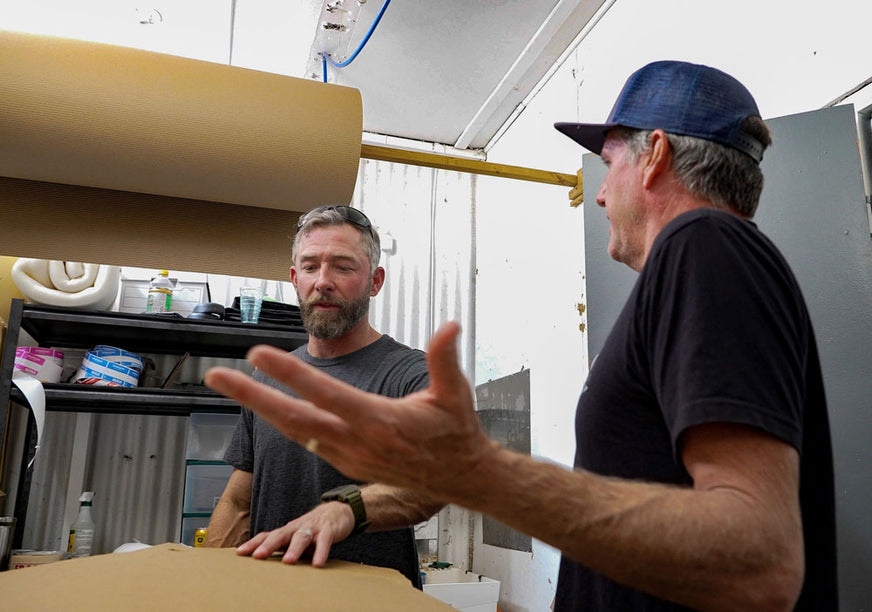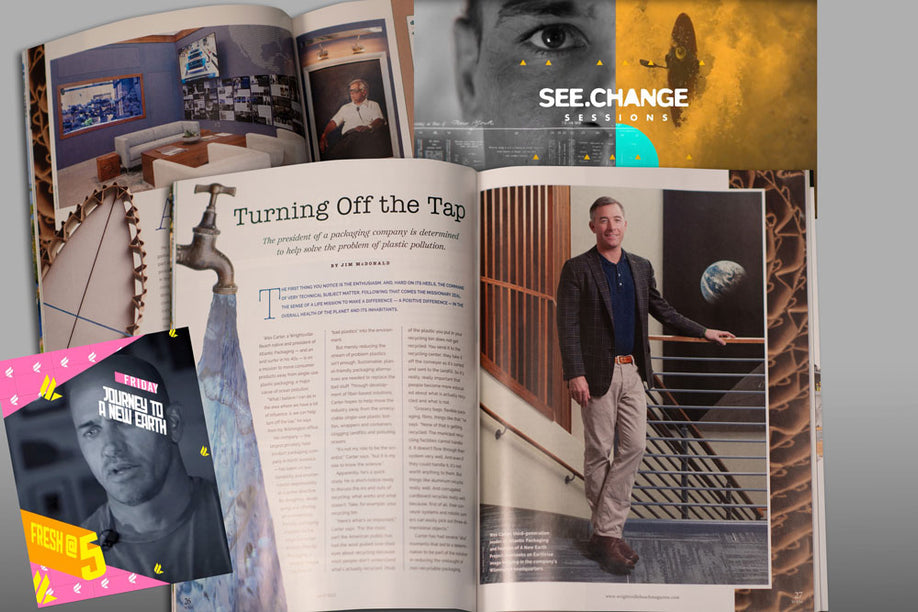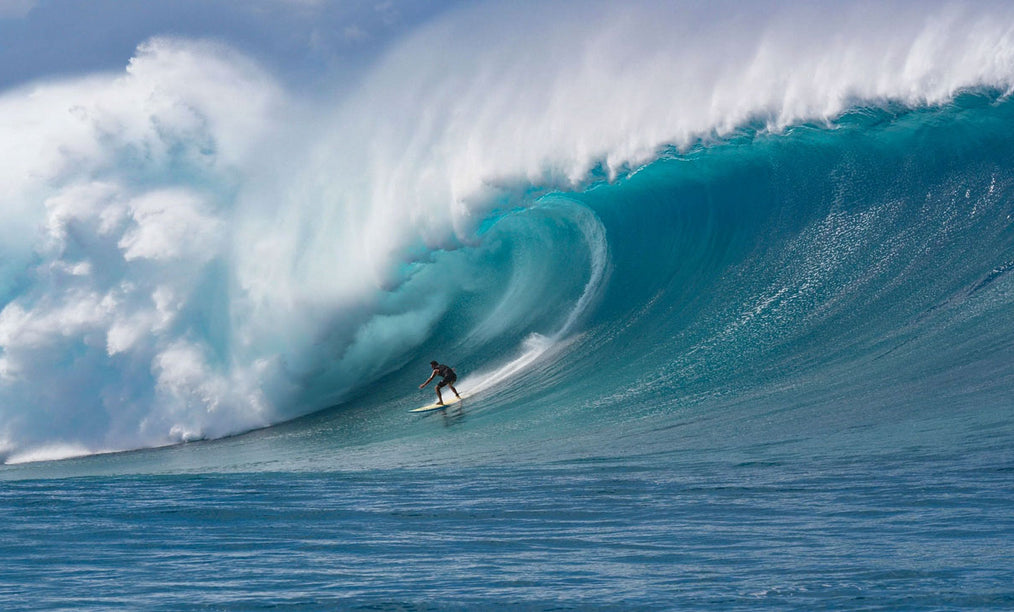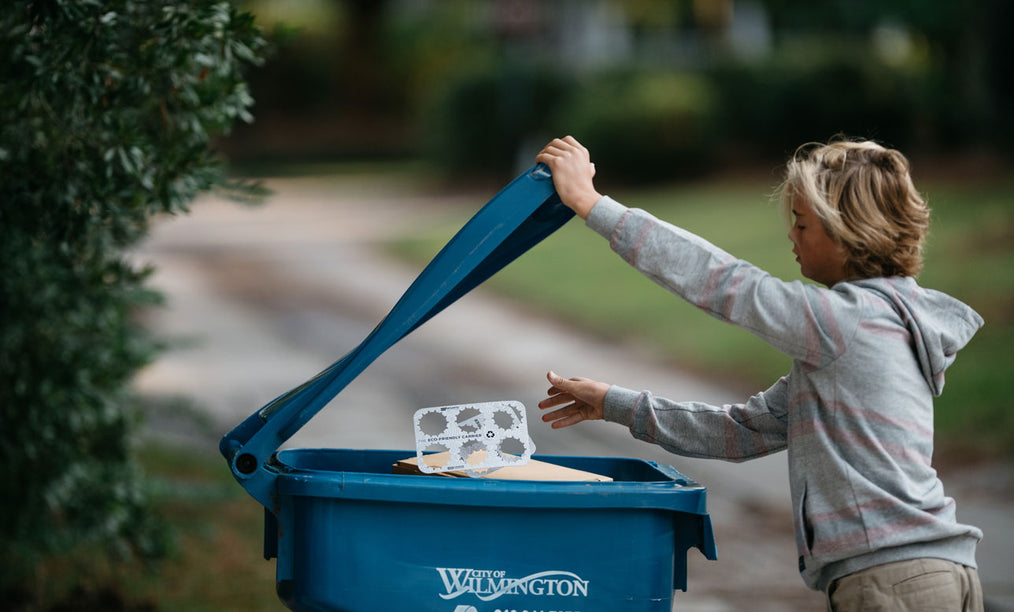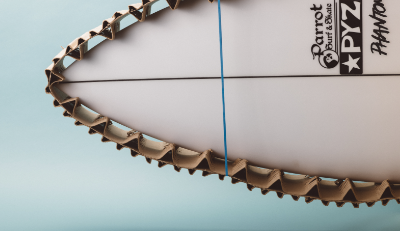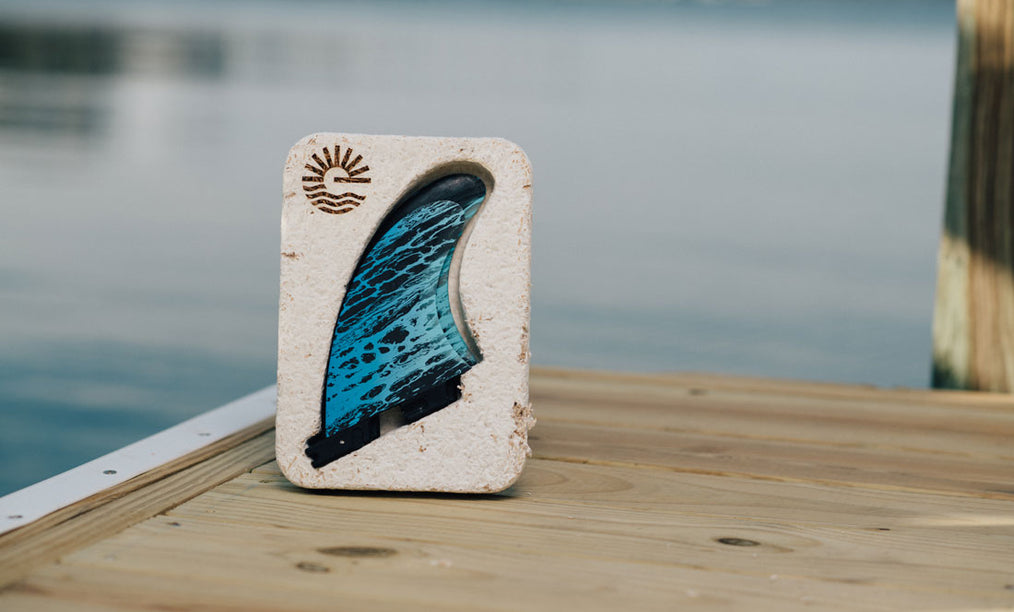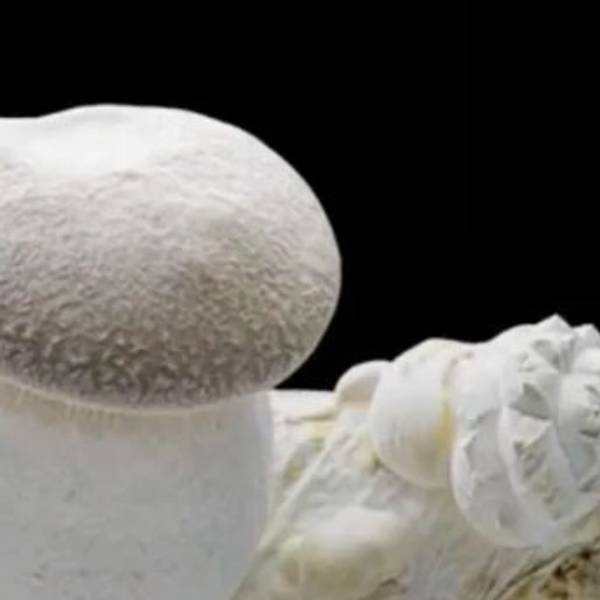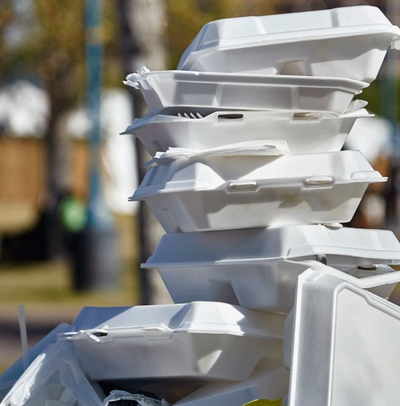As the global search for viable alternatives to single-use plastics heats up, a variety of packaging options are going under the microscope for further scrutiny.
In a perfect world, there would be no trace of our single-use packaging materials three to six months after their use, but sadly we're doing the exact opposite today. And on a reckless scale. Today, we're producing single-use plastics at a faster rate than ever. We produced more in the last year than we did during the entire decade of the 90s, despite the fact that the average use time of single-use plastics is around 10 to 12 minutes.
So ponder this...For 12 minutes of moderate convenience, we leave behind waste product that will still be here when the grandchildren of our grandchildren's grandchildren are around. In what world does that make sense?
Meanwhile, two billion people on earth (1 out of every 4) don't have access to any functioning waste management system. What's worse, developed nations (including the U.S.) who love to champion their own waste management skills, have spent billions shipping their trash to regions without functioning waste management, under the guise of it being "recycled" or "processed." As a result, billions of tons of developed-world waste leaks into nature.
Fortunately, the world is slowly waking up to this injustice. And we better, because the latest reports indicate that plastics will outweigh fish in our oceans by the year 2050.
Ecovative is among those leading the way.
The company was founded in 2007 by Eben Bayer and Gavin McIntyre, two undergrad students at Rensselaer Polytechnic Institute. While taking part in an "Inventor Studio" class taught by Professor Bert Swersey, they hatched an idea to create mycelium-based materials that could be used for the fabrication of products.
Mycelium is best known as the root structure of the mushroom, and the main body of all fungi. It consists of incredibly thin fungal tubes called hyphae that are on a never-ending hunt for nutrients. These fast growers have amazing foraging skills.
While not a plant or animal, mycelium still needs nutrients to survive, so the hyphae attach themselves to almost everything, especially dead biomass, which they help decompose and recycle. These fascinating foraging traits are why mycelium is often called nature's glue.
Bayer and McIntyre launched the Mycelium Foundry to search for ways they could use fast-growing fungi to develop fully biodegradable materials. The Foundry was the first huge step, because a world class library of fungal strains was required. Following that effort, they began observing the natural foraging properties of various strains and how they reacted with a wide variety of raw inputs that could lead to composite materials.
"They tested more than 500 raw inputs just in those early days," says Meghan Olson, who heads up packaging for Ecovative today. "We're talking everything from feathers to ripped up jeans. But their big breakthrough, the one that showed the most promise, was hemp hurd."
Hemp hurd is the byproduct of industrial hemp cultivation. Today, hemp's bast fibers are in high demand. The hurd byproduct, until recently, was just considered waste. Its wood chip-like consistency was exactly what Bayer and McIntire were looking for. By combining those fibers with mycelium they found a startling range of suitable applications, and packaging possibilities are just one of them.
Today, Ecovative's Mushroom® Packaging is turning heads because of its potential to replace highly destructive Styrofoam, which after use, can end up in nature for centuries. Atlantic Packaging President, Wes Carter, is among the biggest believers in the opportunity.
Atlantic, it should be known, is the biggest privately held industrial packaging company in North America. They test, sell, and distribute packaging products from a variety of packaging manufacturers for a variety of large consumer packaging goods (CPGs) and retail brands. Being privately held, Carter is in the enviable position of not being beholden to the stock market analysts, shareholders, or quarterly reports. And because Atlantic is more distributor and consulting company than producer, they can help customers find the best solutions to their needs. That means they have latitude to experiment with greener packaging technologies, and the freedom to work closely with their customers searching for more sustainable solutions.
Carter's radar for "greenwashing" is next level due to his insights and expertise. He'll be the first to tell you why a lot of "biodegradable" and "compostable" packaging products don't pass even the basic smell tests. "You hear a lot about compostable packaging these days, and so much of it is dubious to me. First off, if its bio-plastic it still has really strong molecular bonds that require heat to break, so it isn't like you can just through it in your backyard," he explains. "I'm also am very concerned about feedstocks. Transitioning to plastics made from GMO corn sprayed with RoundUp doesn't seem like a good solution. It seems like an awful one, and a lot of compostable packaging is coming from corn and sugarcane."

Carter heard about Ecovative's work through mycologist Paul Staments, and was immediately intrigued. "Packaging that is grown from mushroom roots? Really? That was my first thought," he laughs. "But I was completely blown away when I saw it. The mycelium feed on hemp hurd, a useless byproduct of hemp farming, so it was just full integrity to me. Mushrooms are really special and serve life on this planet in so many ways. Mushrooms really are magic. Ecovative and their mushroom packaging is by far my favorite packaging to date. So, at Atlantic we're now committed to helping them find good applications, so they can continue to grow and add capacity. We're thrilled to be a primary channel partner for their products."
Measuring a product's real sustainability grade means examining its entire life cycle. While the biodegradable end-use of Mushroom® Packaging is often front and center, what's equally impressive to environmental experts is its ability to be harvested and scaled from nature without impacting the food supply. There are no major land-use issues like there are with corn-based solutions, nor are there any issues involving genetically modified ingredients. Like succulent plants, which grow quickly, mycelium can be stored and scaled in controlled environments. So, in essence, Ecovative is growing products that are durable, plastic-free, 100% bio-based, and home compostable after their use.

Today, as a major channel partner for Ecovative, Atlantic's sales team is eagerly putting the word out on Ecovative's alternative to plastic. With industrial designers and packaging experts at their Charlotte, North Carolina, solution center, Atlantic will be helping their customers make the transition.
"The opportunity is for Mushroom Packaging is incredibly intriguing," says Carter. "And we're just scratching the surface. Anywhere we see resin-based foam being used currently, that's an opportunity to make the switch. On the direct to consumer side, that's everything from watches and wine, to jewelry, glassware, phones and laptops. But there are also endless industrial applications in automotive and aerospace, where we ship a lot of parts from business to business. There really is no limit as we continue to evolve the technology."
Looking for a packaging solution? Go on, consider shrooming.
